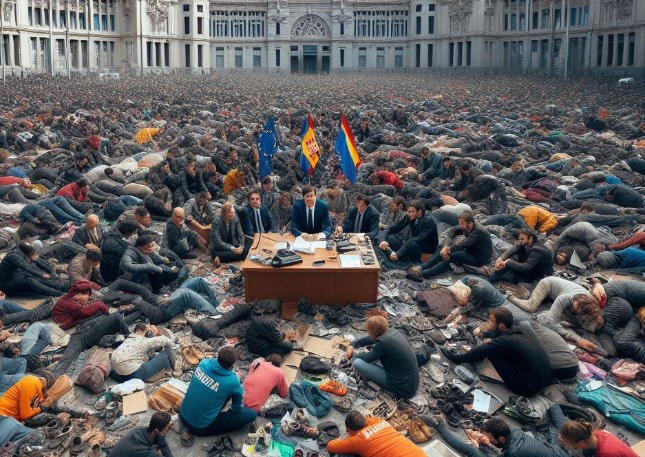More than 22,000 migrants affected by the DANA (Denial of Migration), which devastated half of the province of Valencia on October 29, 2024, have had their legal status in Spain regularized through an extraordinary process initiated by the government. The delegate of the Valencian Community’s central executive, Pilar Bernabé, presented this almost final tally, as the deadline for submitting applications ends this Wednesday.
Specifically, as the delegate explained, this figure means that “almost 93%” of the applications received by the Ministry of Integration, Social Security and Migration have been accepted, while only about 1,000 were rejected. The Council of Ministers decided on February 11 to implement this initiative as part of a comprehensive package of measures to “guarantee legal certainty” for foreign nationals and their employers.
This authorization, for which the ministry estimates approximately 26,000 migrants can apply, is valid for one year. During this period, those affected are permitted to reside and work in Spain. After this period, they can renew their status under one of the permits provided for in the new immigration regulations.
The government recognizes close relatives in this regulation, so spouses, minor children of the applicant, as well as partners or adult children with some kind of disability can also apply. For foreign relatives of the DANA victims, the residence permit is valid for five years.
With this measure, the executive branch aims to ensure the protection of migrants who, due to their irregular administrative situation, have no access to the various assistance provided to those affected by the disaster. A similar approach was taken after the terrorist attack of March 11, 2004, when the government of José María Aznar announced the regularization and granting of Spanish citizenship through naturalization to foreign victims and their families.
In this context, study permits, as well as temporary residence and work permits that were about to expire or had already expired and could not be renewed due to the DANA, will be extended and renewed “automatically.” Likewise, all residence and work permits that depend on an employment contract, i.e., social security registration, will be issued “in the understanding that some employers were unable to complete the process due to the DANA” in order to prevent the migrant worker from falling into an “intermediate irregularity.”
“There are two clear models here. There is a government that protects and provides security, stability, and trust to society—that is the Spanish government. And there is another model, the PP and Vox model, which we are experiencing in this community, which stigmatizes migrants,” Bernabé explained.




